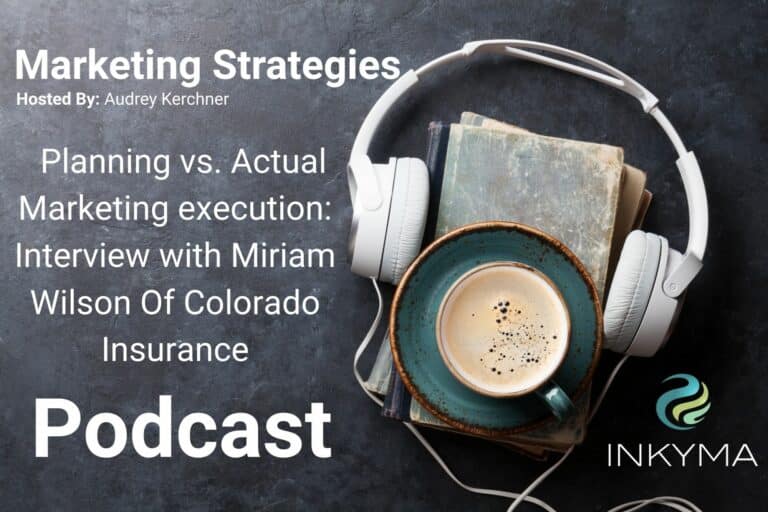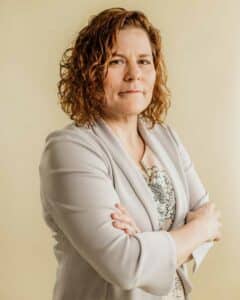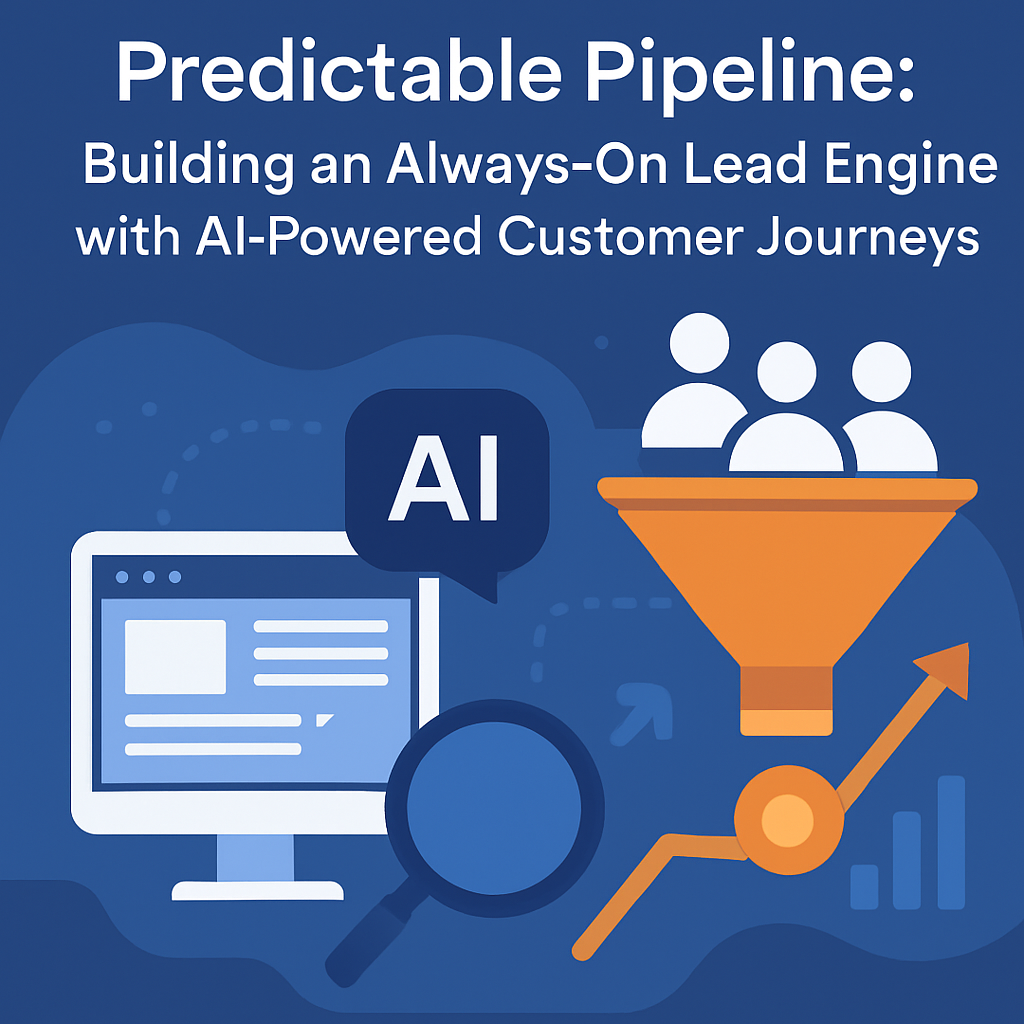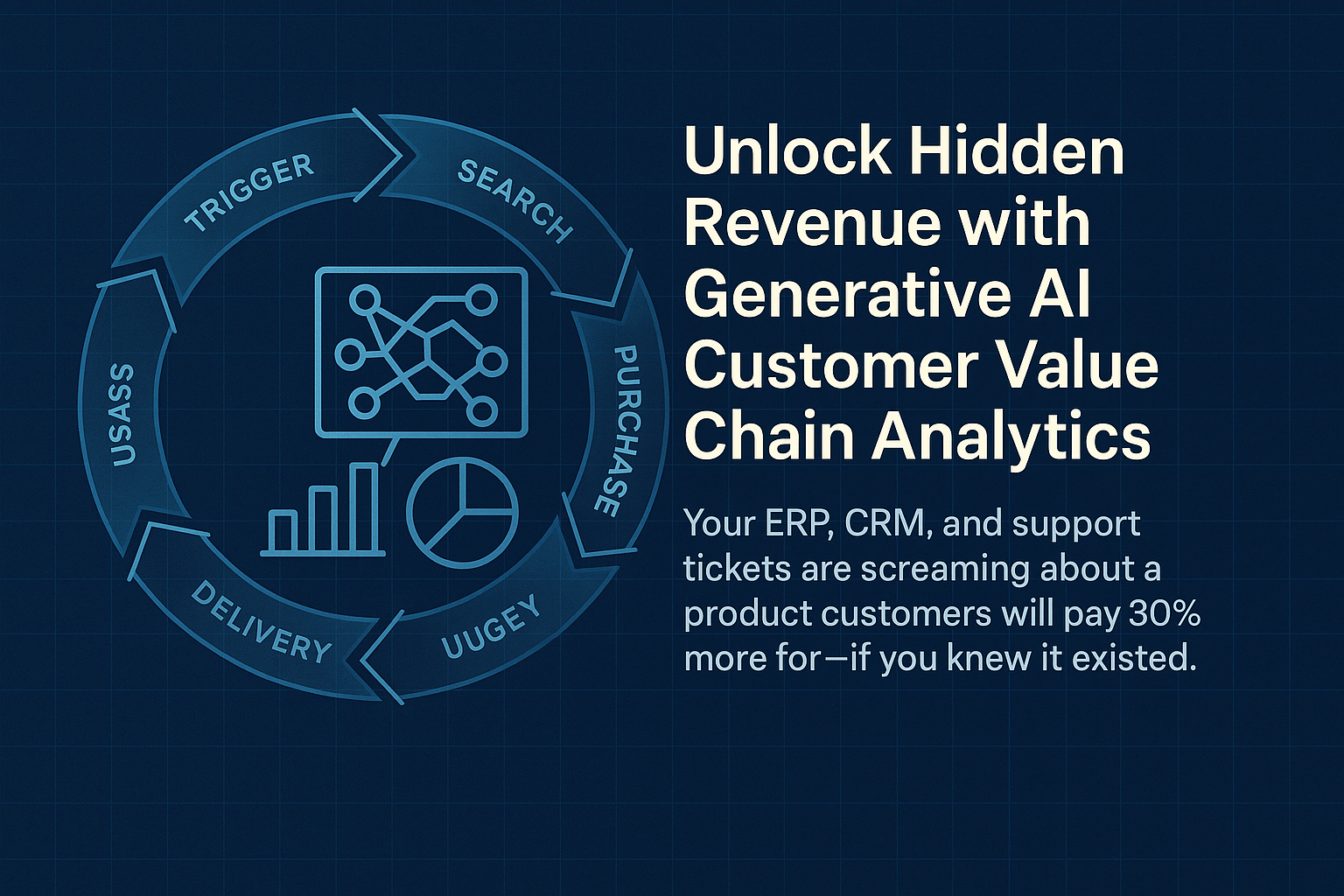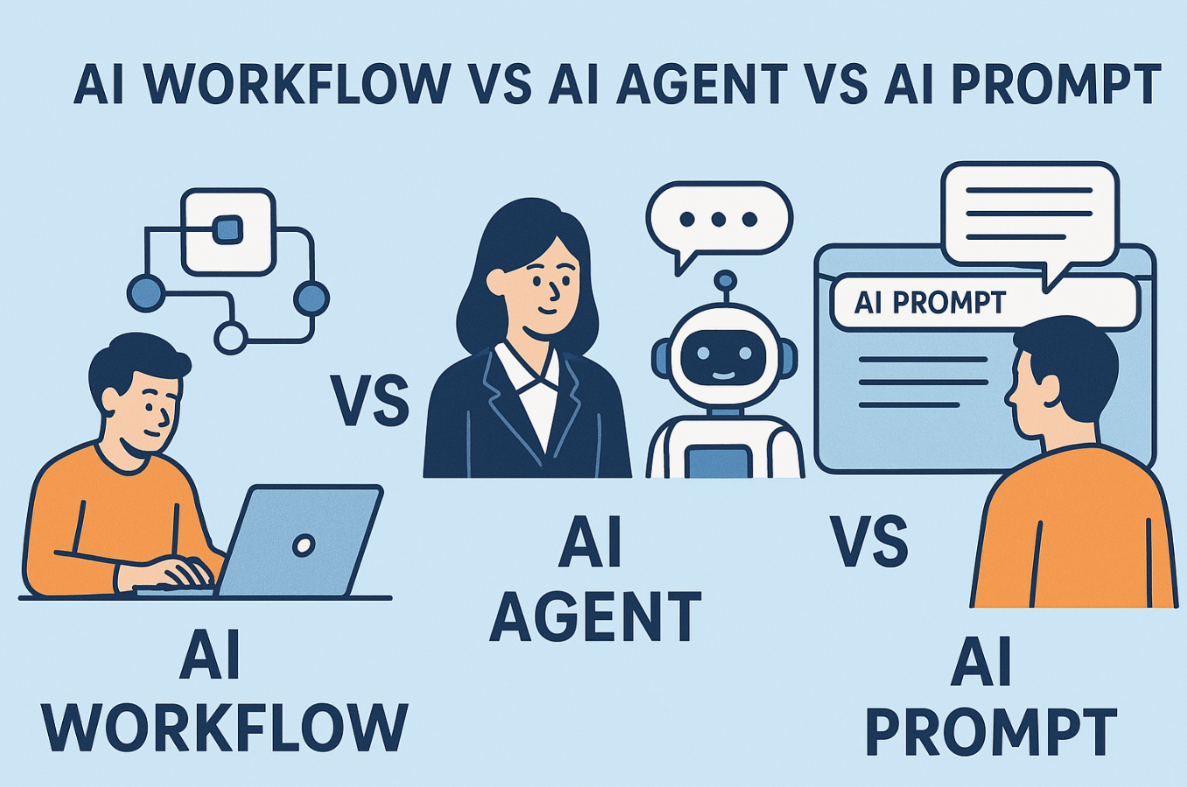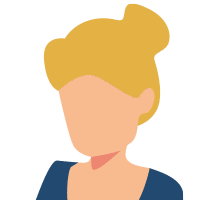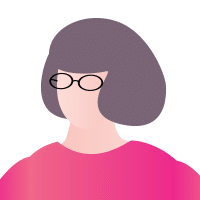What is the difference between planning vs actual marketing execution? Today we are talking to Miriam Wilson, an independent insurance broker, of Colorado Insurance about just that! Miriam explains how she’s using word of mouth, organic reach and paid ads to make a difference in her two-year-old business and how you can do it too.
Links Mentioned In This Episode:
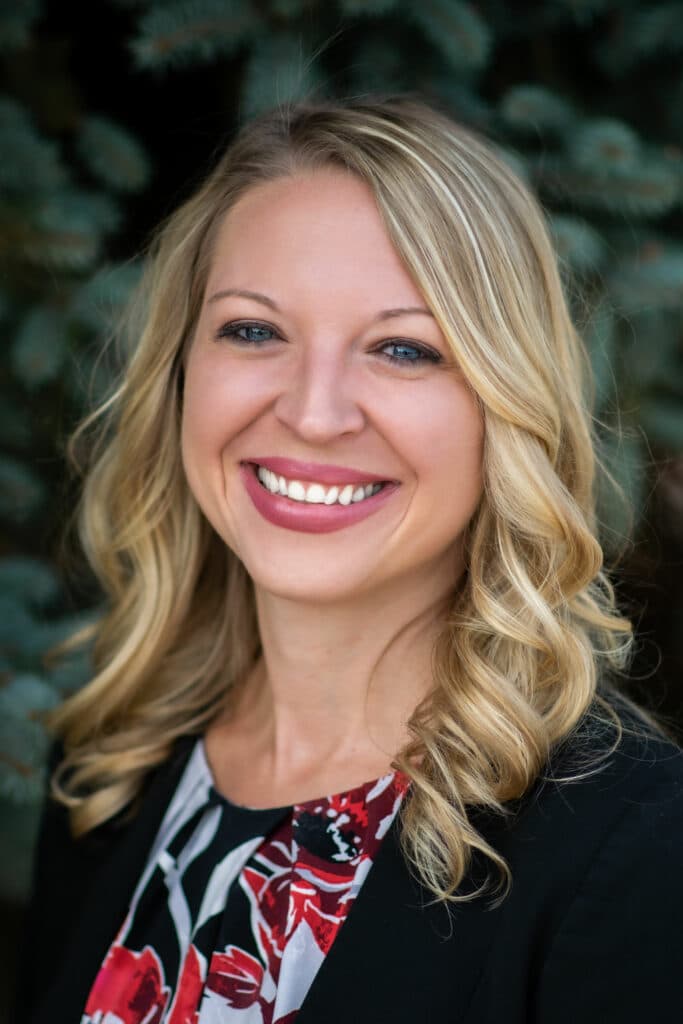
Telephone: 719-367-8198
Facebook page – https://www.facebook.com/Miriamwilsoninsurance
Email address mwilson@buycoloradoinsurance.com
Planning vs. Actual Marketing execution: Interview with Miriam Wilson Of Colorado Insurance Transcription
Announcer:
Welcome to Marketing Strategies with Audrey Kerchner sponsored by Inkyma, taking your small business to the next level with proven creative solutions designed to grow your awareness and connect to your customers. Now, here’s Audrey.
Audrey Kerchner:
This is Audrey Kerchner, co-founder and chief marketing strategist at Inkyma. Inkyma is a full-service marketing agency and we bring that big agency process feel customer service level to small business owners all across the country. To learn more about what we do, ask a question, or to schedule an evaluation for your business go to our website inkyma.com, that’s I-N-K-Y-M-A.com. If you’re new to the show or returning, welcome, we’re really glad that you’re here and hopefully, if you’ve come back that means that you’ve found this information that we’re sharing really helpful. You can go back and listen to all of our episodes on your favorite podcasting platform, just go and do a search for Inkyma and the Inkyma Marketing Strategies Podcast will pop right up. So today we have a guest, I love doing interviews, the energy is great, and more importantly, the information the audience gets about hearing from real business owners and what we go through day in and day out and what it’s really like to own a business is invaluable. So I want to introduce Miriam Wilson she’s the owner of Colorado Insurance, welcome.
Miriam Wilson:
Thank you. I’m so glad to be here.
Audrey Kerchner:
Yeah, this one’s going to be a real fun one because we’re both former thespians.
Miriam Wilson:
With a TH.
Audrey Kerchner:
Yeah, exactly.
Miriam Wilson:
Sorry.
Audrey Kerchner:
See, this is why this one is going to be so much fun. So tell us a little bit about your business and what you do.
Miriam Wilson:
So I am an independent insurance broker and what that means is I represent several different companies to shop around for my clients to find the right coverage for the best price. So auto, home, toys, things like trailers, RVs, motorcycles, umbrella policies, all of those things that you personally own I help find that coverage for them.
Audrey Kerchner:
So independent agent also is I guess a synonym for captive versus noncaptive. So explain a little bit about what that is because we hear that all the time and us outside the industry are like, what? You’ve got a cage, what?
Miriam Wilson:
You’re kidnapped? Should we call Liam Neeson? So captive means you work for one insurance company, when you say noncaptive it’s you represent several, so you more or less work more for the client than the company themselves.
Audrey Kerchner:
Which is really, I think in my opinion, really important because when you hire an agent you want them to be on your side versus on the side of the company trying to stuff you into a policy that may not be a right fit for you. So I think being independent or having an agent who’s independent is super valuable.
Miriam Wilson:
I have always wanted to go more like the broker side because of that reason. I want to benefit, not that I don’t care about the companies, all of them that I’m appointed with, I care about the client and what’s best for them.
Audrey Kerchner:
And that’s great. So how did you get into insurance? I always love asking that question because everybody has such amazing stories on how they get into owning the business that they own.
Miriam Wilson:
So hopefully you’ll believe this. So 10 years ago I moved from Tennessee to Missouri, so I was with a certain insurance company and I just transferred to an agency there. And talking to the rep there the agent came in, introduced himself, blah, blah, blah, and then before I left he said, “Hey, are you looking for a job?” And I said, “Let me go get my resume,” because I had just moved there so I’m like, a 100% absolutely. It wasn’t until six months later when they had a position but it was because of that interaction that I got into it and got all my licenses and passed all those fun state tests and paid all those fees, but it was worth it because now here I am. I never thought I’d be in insurance, I thought it would be something fun, not that insurance isn’t fun, but glamorous like an actress or something, I don’t know.
Audrey Kerchner:
Right. Exactly. Owning your own boutique on Madison Avenue, right? So that’s why I like asking the question. So what made you stay? Right? You got your license, you do all this stuff, you pay the fees, you get your continuing education, what keeps you motivated to do all of that?
Miriam Wilson:
Like I said, I’m 10 years in, I’m too old to learn new tricks, now I enjoy it oddly enough. I know, like I said, it’s nothing glamorous, it’s just people are like, oh I’m in accounting, and you’re like, oh, no, I actually enjoy what I do because it’s not just the insurance side of things, it’s helping people and that’s always been my passion is to help educate people. People don’t know what they’re buying and some agents just go, here you go, which I do but I’m like, hey, what questions do you have? I am able to meet you in person and go over this, I can talk to you over the phone, you can email me questions, but I want them to ask those questions to figure out what they’re paying for. I don’t want them just go here’s my money, which is great, I want them to understand what it means.
Audrey Kerchner:
Yes. And that there’s some benefit wrapped up into it, it’s just you’re not paying it because you’re supposed to.
Miriam Wilson:
Right.
Audrey Kerchner:
You and I are both, and we talked about this before, we’re in the industry where we’re a necessity but we’re not exactly what they really want to spend their money on. We’re not selling them shoes we’re selling them or marketing our insurance, right? Because I was selling shoes and-
Miriam Wilson:
Heck, I wish I didn’t have to pay for it, I mean.
Audrey Kerchner:
Exactly.
Miriam Wilson:
But it is one of those necessary evils because unfortunately, we live in a society where everyone is so happy. So do you want to be in that situation where you go, oh I’m being sued but, oh, I don’t have the right coverage, what?
Audrey Kerchner:
Yeah, or something weird happens and you’re not covered and then you’re paying out of pocket. So being able to feel comfortable that you’re talking to someone where you can ask them questions and know what you’re buying, right? Because on my side of the fence, it’s like, I don’t buy insurance every day, I don’t know the ins and outs. I trust folks like you, like Miriam, take care of me and make sure all my stuff is covered so I can go off and take care of other people.
Miriam Wilson:
And I have clients who say things like, just do the things you need to do, I trust you, I’m like, okay, that’s fine.
Audrey Kerchner:
And I don’t feel stupid asking questions, right?
Miriam Wilson:
No. Like I said, I want people to ask questions because I want them to be well informed because when that time comes, because it’s not if you file a claim, it’s when, it’s just a matter of time. So I want them to understand what they have so when that claim time comes they understand like, hey, oh my gosh, that is something that’s covered, or oh cracker settlement of my foundation isn’t covered because it’s something that happens over time. Insurance is sudden and accidental is what I explain so when things happen over time that’s not sudden or accidental.
Audrey Kerchner:
Right. That’s very interesting. So Colorado Insurance, how long have you had this business entity?
Miriam Wilson:
Oh, gosh. So I launched on February 1st of 2020.
Audrey Kerchner:
Back when things were okay and rosy and normal.
Miriam Wilson:
Right. I saw sunshine and rainbows and there was a little pot of gold at the end of that rainbow and then March everything shut down.
Audrey Kerchner:
Yeah. Everything changed for everybody.
Miriam Wilson:
Yeah, it was.
Audrey Kerchner:
And you’re still here, congratulations by the way.
Miriam Wilson:
Thank you.
Audrey Kerchner:
You have no idea how many people I have helped through that whole time and they came out the other end and the others just went, I’m done, and they walked away and shut their bedroom door and they were done.
Miriam Wilson:
It was really hard, I mean, there were times I’m like, I made a big mistake, but there was no takesies backsies, this is it, I got to either figure it out or-
Audrey Kerchner:
Go put my PJs on.
Miriam Wilson:
Right. Go back to bed forever.
Audrey Kerchner:
I’m going to figure this out or I’m going to go back to bed, one of the two is going to happen. You’re just about to the end of year two, which I think is fabulous, you’ve got through that first year and everybody goes, okay, now I should know what I’m doing, right? And then we’re all like, or those of us that have done it we kind of laugh like, no, no, no, you’ve got a couple of more years before you really feel like you know what you’re doing.
Miriam Wilson:
Oh, a 100%.
Audrey Kerchner:
Here’s a question I wanted to ask you, so when you first started what was your marketing plan? And then now that you’re into it almost two years, what actually has transpired from a marketing perspective for your business?
Miriam Wilson:
So what I wanted was to have all of these ads everywhere and buy Facebook ads and Google Ads or whatever, and then nothing happened last year because there wasn’t a lot of income coming in so financially I couldn’t afford all of these things. So I did all of the free things like Facebook and I just joined a lot of these networking groups and a lot of them were via Zoom so I did a lot of that. And then eventually I bought into a Yellow Page ad so something small, I started there. I wanted something out there so people could search on Yellow Page and go, insurance person, oh, Miriam Wilson pops up, so that’s what I did last year.
Audrey Kerchner:
And I think that’s great because if you’ve listened to the podcast usually I’m always telling people, start small, if you haven’t done this, start small. Don’t go out with a bang because I guarantee you what you think you’re going to do and what really winds up being the truth at the end of it, two, three months later, is totally different so don’t waste all that money. So starting small in one place figuring it out that’s really setting you up for success when you do start to do paid ads with Facebook, Instagram, the Google assets.
Audrey Kerchner:
If you’ve just joined us, I’m Audrey Kerchner and this is Marketing Strategies. And this week we were talking to Miriam Wilson owner of Colorado Insurance and we’re finding out how a year-two business continues to grow and market themselves. Talk a little bit more about what you’re doing on Facebook for free which is what we call organic. I kid you not, everybody gets confused between the paid and the free of Facebook and they’re expecting free to act the same way that paid does and it doesn’t, it’s totally different. So talk to me about what you’re doing on Facebook.
Miriam Wilson:
So the free aspect is going to be completely different than what you buy for an ad, an ad is going to go reach out to those clients, the free stuff I’m reaching out to them. So there’s a lot of ads, there’s Word of Mouth Colorado Springs and then something similar Is Colorado Springs Word of Mouth and then the 411 on the 719. And so people go, hey, I need a hairstylist, and then a bunch of people will tag business owners or just go, hey, this is the person I used, and so I have individuals who have liked my services and they tag me on those posts.
Miriam Wilson:
So then I have to go into and write something underneath that tag with all of my business information and hope that they call me. Sometimes they’ll say, I need an insurance broker PM me, because you can’t just send them a private message unless they request it, so if that’s the case then I send them a private message, otherwise, I’m hoping that they call. Instead of these ads where are marketed for you and you don’t have to do much, you don’t have to lift a finger which would be great.
Audrey Kerchner:
No, you get the beautiful button where they click on it and it can call you, it can send you an email, it can send you a private message. So yeah, what we’re talking about here is not just the page, your organic page, but the groups in Facebook which has become one of Facebook’s most powerful assets and it’s so much more engaging than just putting things out on your business page and then hoping people see it. So that’s inspiring because now I’ve got to do a whole episode on the difference between your page versus groups and how to get people to use Messenger service.
Audrey Kerchner:
So I love it, that’s why I love doing these interviews because I get so many great ideas. And it’s interesting because a lot of the business owners I talk to everybody is like, oh yeah, I do social media, but not into the depth that you’re doing. You’re working it, you’re working it really hard and now I can see why you have over 140 followers on your page with being so new and not spending money to get them, it’s because you’re interacting within the groups, so the groups are really powerful.
Miriam Wilson:
They really are. And I’m so appreciative of all the people that do tag me because again, it gets me in that door to go, oh, someone’s used me, they’re recommending this lady so maybe I should call her.
Audrey Kerchner:
Yeah. And it’s that trust factor. If someone else is recommending you it instantly boosts that trust factor up way, way high as opposed to you going, hey, I’m here.
Miriam Wilson:
Right. Which, I mean, I’ve done before, I’m like, hey, I’m a broker. But if people tag you and I’ve had one post I was very excited, I was tagged four different times in one post.
Audrey Kerchner:
That’s powerful.
Miriam Wilson:
So they see, oh, this person has been tagged four different times, she must be trustworthy, I should call her.
Audrey Kerchner:
Well, and the fact that you’re going back in and you’re either saying, thanks for posting me, here’s my information, it shows that you’re engaged and that you care. And then the person who’s looking sees that, she’s been tagged four times, she’s going and responding to everybody, yeah, I’m going to follow up with her.
Miriam Wilson:
I even had someone who’s like, hey, I saw your name pop up on someone else’s post, so they saw my name from a question someone else asked and they called me.
Audrey Kerchner:
Oh, that’s so cool.
Miriam Wilson:
She was like, yeah, so someone else asked that question but I got your information from it, I was like, yay.
Audrey Kerchner:
So on a weekly basis how often are you on Facebook and doing all of this? Because that’s the next question I get is, how much time does all this take because I have no off time for this kind of stuff?
Miriam Wilson:
You make time for the things you want though, that’s the thing. You want those leads, you want to work the free system, you have to work it, you have to make that time. Every hour or so I will go on my Facebook and look at my notifications, if I see something from 411, Word of Mouth, blah, blah, blah, blah, blah, I will immediately go in there. So you just have to be conscious, and not get lost in Facebook, oh, let me see what so and so is doing, so you have to go on there just for the business purposes. Now later on I’m going to scroll through Facebook when I’m laying on my couch in my PJs.
Audrey Kerchner:
Absolutely. But during the workday, it’s like-
Miriam Wilson:
But during the workday, you have to be super disciplined. And I’m not going to lie, I’m not a 100% perfect on that, sometimes I’m like, you know what? I just want to look at my numbing things, I don’t want to think.
Audrey Kerchner:
Yeah. Or you go to respond to someone about a post and you see a kitty and you’ve got to go look at the kitty cat.
Miriam Wilson:
Right. Or see someone with a new baby, I’m like, oh, I want to squeeze those cheeks.
Audrey Kerchner:
That’s important right now.
Miriam Wilson:
Right.
Audrey Kerchner:
Well, that’s good to know. So you’re going frequently for short bursts.
Miriam Wilson:
Sure.
Audrey Kerchner:
Now let me ask you another question. Are you doing this on your desktop computer or you’re utilizing certain things from your phone to help you with this?
Miriam Wilson:
Yes.
Audrey Kerchner:
Both?
Miriam Wilson:
Yes.
Audrey Kerchner:
That’s what I was figuring. I mean, that’s honestly-
Miriam Wilson:
Because I might be in a meeting or I may be out to lunch and I’m like, all right, while I’m sitting here at lunch let me check my Facebook, but it’s on my phone or my laptop if I have that with me, but.
Audrey Kerchner:
And, well, what’s interesting is we do this for a ton of clients across everywhere, so I can’t have notifications on everywhere so I’ve chosen to have notifications for things like Messenger and Facebook on for my phone where it just pops the little number up versus having something flash onto my screen every time I’m on a Zoom call with someone.
Miriam Wilson:
That gives something shiny.
Audrey Kerchner:
Yes, exactly.
Miriam Wilson:
Squirrel.
Audrey Kerchner:
Way too many shiny squirrels on my screen. So yeah, I use them together and that’s what I instruct clients to do too, it’s like, don’t have everything popping up on your desktop just have the little number come up on your phone and when you scroll over to it you’ll see it.
Miriam Wilson:
Exactly.
Audrey Kerchner:
Yeah, otherwise if you spend way too much time on this stuff it can make you crazy. So going into year three and four what are some things you want to do now that you know what you know about your business from a marketing perspective?
Miriam Wilson:
Definitely, I want to look into a lot more advertisements, not just in the online world but like sponsoring a golf tournament. So I’ve heard that that’s very beneficial to do and it gets your name out there, but it’s not always the cheapest and I’m on that single mama budget. So to afford all of these different golf tournaments, all these different advertising, all these different things, I’d be putting more into it than I’m making. And so next year or the year after things like the golf tournaments, things like, you’re the marketing person, I don’t know if there’s any Google Ads you can pay for.
Audrey Kerchner:
Yes, there are. I’m so glad you asked that question, I love talking about Google Ads. So Google has a suite of different types of advertising available to you. Most people know these search ads where you put in a search and the little text box comes at the top and it says, ad next to it, that’s always been the most popular. I actually very rarely use that for any of my clients, where I guide people is to do display ads and YouTube ads. And so what display ads are, it’s you create an ad and you pick your demographic, so for you, it would be Colorado Spring plus however X many miles outside of that you want to go and then wherever they are your ad shows up and it’s full-colored images, video, text, your brand colors, it’s like those little square ads that you see in the weather app or on maybe a news channel or anywhere you are hanging out, so it’s not just in the Google search.
Audrey Kerchner:
And that’s where I think that’s really powerful because it kind of follows them a little bit but without being too intrusive. And then the second one which is the YouTube ad is that five-second video that comes up before you’re binge-watching something on YouTube or going through it, it’s based on the person’s criteria not what they’re watching. Right. So let’s say for your sake the audience is an interest-based audience where they’re actively looking for auto insurance, they could be watching a video on how to do squats really well but an insurance video can show up before then because they’ve met your criteria and then you get the motion and the video. So it’s like doing commercials with a fraction of the cost, you’re not paying any more than the banks and the Pepsi companies because it’s based on impressions. So you could put a couple of a hundred dollars against it per month and actually really get a good exposure rating.
Miriam Wilson:
Yeah. See, this is why people like me need people like you. I have no idea what you just said and probably vice versa about insurance.
Audrey Kerchner:
Exactly. And that’s what I get from my clients. If you just joined us I’m Audrey Kerchner and this is Marketing Strategies. And this week we were talking to Miriam Wilson owner of Colorado Insurance and we’re finding out how a year-two business continues to grow and market themselves. Yeah, so that’s just some of the stuff that you can do. And the beautiful thing about digital ads is that you don’t have to spend a lot, if you’re doing a hyper-local area you can get away with 400, 500 bucks a month in ad spend and still hit 20,000 impressions and it’s your target audience which is really, really cool.
Audrey Kerchner:
But I like the idea that you’re thinking of being in multiple places because you can’t just pick one place and only have an ad there. You want people to see you in multiple places because once they see your face and I love that you put your face on everything, they get to know you. And then all of a sudden there’s this weird trust factor that they’ve never met you but yet they already trust you because they’ve seen you so many times, it’s a weird psychological thing.
Miriam Wilson:
That’s why I want to make sure it’s on my signature, my face is on my business card, I want to be in their mind.
Audrey Kerchner:
Yes. And it’s on you’re social media.
Miriam Wilson:
It’s like, oh, I know that face.
Audrey Kerchner:
Exactly. And then they associate the name to it. And then all of a sudden someone says, well, who do you use for insurance? Oh, Miriam Wilson, and in their head, they go, I know her, and they’re like, I’ve seen her, and then all a sudden it comes together and that’s what you want so you want to see it. Real estate agents do it a lot too, like the shopping carts where you see their faces everywhere.
Miriam Wilson:
It’s smart.
Audrey Kerchner:
It is but you’ve got to have the other pieces in place too for it to work.
Miriam Wilson:
Oh, 100%. Oh yeah, you have to do all the things.
Audrey Kerchner:
Yes. But you don’t have to do all the things at once. I heard you say that, you’re like, I want to do all these things, but then I’m spending more than I’m making, obviously that is not sustainable. A marketing budget should be somewhere between 10 and 15% of your gross income to be sustainable. But you can start small, you were talking about sponsoring a golf tournament, yeah, you could be one of the five big sponsors or you can start out with sponsoring the flags at the holes, right? And having your name, your logo and everything there, or even volunteering and being a volunteer at the golf tournament along with doing the small advertising pieces and then you can build up over time. And you just kind of keep adding to it as you go and then at some point then you get the full surround sound.
Miriam Wilson:
Exactly. The full surround sound, I like it.
Audrey Kerchner:
That’s what we call it. So if you want to have surround sound, and what’s really cool is if you don’t have money for Facebook and for Instagram and for Google and for LinkedIn and wherever else, Google can actually give you surround sound without going to any other platform because they follow people wherever they go. I mean, if you’re playing a game on an app, if you’re playing Solitaire, your ad can show up, and then they see you on YouTube. It’s still all Google it just doesn’t feel like it’s all Google.
Miriam Wilson:
Oh, okay. See? Yeah, I don’t know all of these things.
Audrey Kerchner:
That’s why we do the show and we talk to folks and all that other good stuff. So what other types of things aside from digital ads are you thinking about?
Miriam Wilson:
I don’t know, I haven’t thought that far down. I don’t know all of the things so eventually is to upscale my marketing but I want that person that I can go to and go, okay, I don’t know any of these things, I know minimal, so I have a Yellow Page ad and another ad that’s on Nextdoor.
Audrey Kerchner:
Nextdoor is a good one for insurance agents and real estate agents, yeah, because it’s all very, very local.
Miriam Wilson:
There are a couple of other platforms that it’s on. That’s the thing, is not knowing what works and what doesn’t. And yeah, you can do the whole trial by error but if you have a go-to person and go, okay, what do you think would work best for me? Because I think it might be different for each person depending on their type of business, yeah so.
Audrey Kerchner:
Not just their type of business but how they want to be perceived as a brand for their business.
Miriam Wilson:
Okay.
Audrey Kerchner:
But there are certain key things where everybody needs to do something in a specific category. You’re talking a lot about outbound awareness, my next question would be is, how are you talking to your existing customers and keeping them happy? I did a whole couple of podcast episodes on growing your business with retention by retaining your existing customers because they are far easier to retain or in your industry you know once you get the auto policy you’re going to get home and motorcycle and everything else because they already you and it’s a far less spend.
Miriam Wilson:
Not all the time, you would be surprised. And it shocks me that I have tons of people that call and they, “Hey, we want to get a homeowner’s quote”, I’m like, okay, well you’re going to save anywhere from 20 to 40% if you bundle with your auto, no, that’s okay. Sure, I will do just the home but retention wise you don’t keep those people much because whoever has that auto whenever that auto policy is going to renew they’re going to call that client and go, hey, we don’t have your home, can we quote it? So it is then my job at their next auto-renewal to go, “Hey, I don’t have your auto, can I quote it?” So now there’s this competing factor.
Audrey Kerchner:
“Interesting.
Miriam Wilson:
And some clients they understand like, yeah, look at everything. And I want a bundle but let’s say their home is best with this company but their auto rates aren’t the best, so I can take them and go, here’s a company that will do your auto, here’s a company that’s going to do your home, so it’s going to be two separate ways but you still have one contact instead of going, well, “Who’s got my auto insurance again? Who do I call?”
Audrey Kerchner:
See, that’s your value proposition. You can shop around on their behalf without having them to do it because like the captive agents, it’s like, well, if you can’t bundle with me then it’s not going to be any good.
Miriam Wilson:
Right. I started captive and that’s what I ran into and why I chose broker is, let’s say the company’s rates go up, there is zero things you can do at that point. You can change their coverage which I don’t like doing, or you’ve run into a situation where they’ve got too many claims and so that company is not renewing their home. Well, you know at that point they’re going to shop their home and their auto so you’re losing the entire household. But as a broker if that ever happens I can go, oh, well, let me just shop you around, oh, I found a company over here that’s better, and I can keep them as a client however long they want me as an agent.
Audrey Kerchner:
Right. And I think that’s your value proposition. It’s like, you don’t like to shop auto, I do, let me do it for you, I’ll be your personal insurance shopper. You can make it super cute, you would so get away with all of that, right?
Miriam Wilson:
Yeah.
Audrey Kerchner:
And then once that message sinks in they’re like, I never have to shop auto again, that could be it, never shop insurance again let me do it for you, type of thing, and that could be your retention message.
Miriam Wilson:
Yeah. And that’s the thing, the next year at the renewal let’s say the company took a rate increase like, hey, your policy has increased by 7%, do you want to stay where you’re at or do you want me to shop around? And so then at that time, they get to decide what they want me to do, what is it essentially. So.
Audrey Kerchner:
I’m going to go shop this for you, is that okay?
Miriam Wilson:
Right.
Audrey Kerchner:
What are they going to do? Say no.
Miriam Wilson:
Right. They’re usually like, oh, thank you.
Audrey Kerchner:
Yes. And when you phrase things the right way they’re going to be like, yeah, I want you to do that for me, I don’t want to do that.
Miriam Wilson:
I don’t have to do anything? No, I’ve-
Audrey Kerchner:
I’ve got shoes to buy, you do all that.
Miriam Wilson:
Yeah, you go shop for the fun stuff and let me do this.
Audrey Kerchner:
There you go. Make sure you write that down because I guarantee you that will get an email open.
Miriam Wilson:
Okay.
Audrey Kerchner:
Absolutely. And that’s a great retention strategy. I’ll do all the shopping for you, you go off and have fun, go on vacation.
Miriam Wilson:
Right. Go have a margarita.
Audrey Kerchner:
Yeah. Go have a margarita, go enjoy dinner with the family, I got this, binge Netflix. Well, we are almost done, isn’t that crazy? I know.
Miriam Wilson:
I felt like we just started.
Audrey Kerchner:
I know. So any last thoughts on being a year-two business owner that you want to share with the audience? Any tips of wisdom? Because trust me, you’re farther along than most people at this stage and what you went through with the pandemic.
Miriam Wilson:
Oh, that’s good, I’m glad to hear that. Don’t be afraid to be yourself in the market. Because when I first started out I was a newly single mom, just had invested all of this money into starting this company so I was the market. So I would go to all of these networking events and go shake hands and kiss babies and all those things to try and get myself out there and myself known and that’s what I did, I hit the pavement.
Audrey Kerchner:
Yes. And that’s always the best place to start to get your name out there because then when you add all the other stuff on top of it, it’s that in-person that first contact that people are going to remember. That is a great way to end this. So when people want you to shop for them how can they reach out to you? Telephone?
Miriam Wilson:
D, all of the above. So my contact number is 719 367 8198 or my email is mwilson@bui, and that’s B-U-I, coloradoinsurance.com.
Audrey Kerchner:
Excellent. And we’re going to put all of that in the show notes too so that they can just click on it and get you, I love it. All right. Well, thanks so much for being on the show, this was so much fun.
Miriam Wilson:
Oh, I had a blast.
Audrey Kerchner:
And we’re going to have you back in another year or two as well, I want to see progress.
Miriam Wilson:
You will, I promise.
Audrey Kerchner:
Here at Inkyma, we like to give back to the business community, I provide a free 45-minute marketing consultation to any business owner, whatever you want to talk about that’s what we’re going to talk about for those 45 minutes. Just go to the website inkyma.com, that’s I-N-K-Y-M-A.com, and in the upper right-hand corner, there’s a button, to schedule your marketing evaluation just click on it, pick your time and we are on the calendar together. Hopefully, you enjoyed and had as much fun with this episode as I did, as Miriam did. If you felt like you were inspired by this share this with other business owners you know, that’s what this podcast is all about, helping the business community grow one small business at a time. Thanks for listening and have an amazing day.
Announcer:
Thanks for listening to Marketing Strategies sponsored by Inkyma, online at I-N-K-Y-M-A.com. Listen to Marketing Strategies every Saturday at 7:30 on KPPF.

